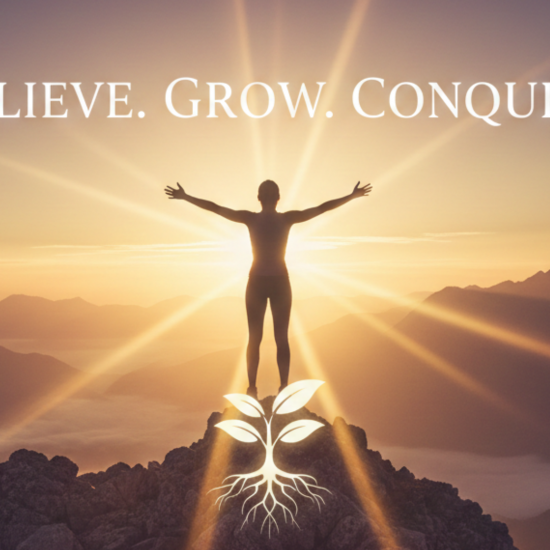Personal development and psychology are closely intertwined, with each drawing upon the other to foster human growth and transformation. Psychology provides the scientific understanding of thoughts, emotions, and behaviors, while personal growth focuses on applying that knowledge to everyday life. At the center of this connection is personal development life coaching, which translates psychological principles into practical strategies to help individuals achieve goals, build resilience, and unlock their potential.
The Core of Personal Development
At its essence, personal development is about enhancing skills, improving mindset, and cultivating overall well-being. It involves taking deliberate steps to grow in confidence, effectiveness, and self-understanding. While personal growth is practical, psychology provides the scientific backbone. Psychological research explains cognitive patterns, emotional responses, and behavioral triggers that shape how people think and act.
When combined with practical tools, these insights empower individuals to make better decisions, build stronger relationships, and move toward meaningful goals. This is where personal development life coaching comes in it bridges the gap between theory and practice, providing personalized strategies for sustainable growth in both personal and professional contexts.
Self-Awareness: The First Step
Self-awareness is central to any growth journey. It involves recognizing thoughts, emotions, and behaviors and understanding how they influence life outcomes. Psychology highlights that self-awareness is linked to improved decision-making, emotional regulation, and interpersonal effectiveness.
Personal development life coaching supports this process by helping clients identify strengths, weaknesses, and hidden patterns. For example, personality assessments and cognitive-behavioral techniques can reveal unhelpful habits that block progress. Once these patterns are understood, coaching provides strategies to shift from reactive responses to proactive choices, improving performance, focus, and relationships.
By fostering awareness, individuals become more intentional, resilient, and capable of directing their growth.
Goal Setting Through Psychology
Setting effective goals is a cornerstone of personal development. Psychology explains why some goals succeed while others fail, emphasizing the importance of motivation, reward systems, and persistence. Life coaching applies this knowledge through the creation of SMART goals—specific, measurable, achievable, relevant, and time-bound.
For example, instead of vaguely aiming to “be healthier,” a coach might help a client set a goal to “exercise three times a week for 30 minutes.” This specificity boosts motivation and makes progress measurable.
Psychological techniques such as visualization, affirmations, and positive reinforcement further enhance success. When goals align with personal values, intrinsic motivation sustains effort even during challenges. In this way, coaching translates psychological theories into actionable plans that accelerate growth.
Emotional Intelligence and Growth
Emotional intelligence (EI) is one of the most valuable skills in both personal and professional life. Psychology studies EI as the ability to recognize, understand, and manage emotions in oneself and others. Research shows that high EI is linked to better leadership, stronger relationships, and greater resilience.
Life coaching develops EI through mindfulness practices, reflective journaling, and communication exercises. For instance, by learning to pause before reacting in stressful situations, individuals strengthen self-regulation. By practicing empathy, they improve conflict resolution and teamwork.
Through personal development life coaching, clients enhance their emotional intelligence, equipping them to navigate challenges, reduce stress, and build stronger connections.
Overcoming Limiting Beliefs
Many people struggle not because of external barriers, but because of internal ones—limiting beliefs. Psychology reveals that subconscious thought patterns strongly influence behavior. These beliefs, such as “I’m not good enough” or “Success is only for others,” can prevent individuals from pursuing opportunities.
Coaches use cognitive-behavioral strategies to identify and reframe these beliefs. By challenging negative thought patterns and replacing them with empowering perspectives, individuals build confidence and self-efficacy.
Personal development life coaching ensures that clients not only recognize limiting beliefs but also replace them with productive mindsets. This shift unlocks motivation, courage, and the willingness to embrace growth opportunities.
Behavioral Change and Habit Formation
Lasting transformation requires consistent behavioral change. Psychology explains how habits form through repetition and reinforcement. While willpower plays a role, long-term success comes from building systems and environments that support desired behaviors.
Life coaching helps clients break down overwhelming changes into small, manageable steps. For example, someone seeking better health might start with drinking more water daily before moving on to bigger fitness goals. Accountability, progress tracking, and feedback keep clients on track.
This structured approach ensures that new habits stick, leading to sustainable personal growth.
Mindfulness and Stress Management
Mindfulness is rooted in psychology and supported by extensive research. It involves staying present, observing thoughts without judgment, and cultivating calm awareness. Practicing mindfulness improves focus, reduces stress, and enhances emotional regulation.
Personal development life coaching often integrates mindfulness techniques such as meditation, breathing exercises, and reflective journaling. These practices not only prevent burnout but also improve clarity and decision-making.
For instance, clients who learn to pause and reflect before reacting to stress experience greater resilience and composure in both personal and professional situations.
Building Confidence and Self-Efficacy
Confidence is essential for progress. Psychology links self-efficacy—the belief in one’s ability to succeed—with motivation and achievement. People with high self-efficacy are more likely to embrace opportunities, persist through challenges, and achieve goals.
Life coaches strengthen confidence by helping clients set achievable milestones and celebrating progress along the way. This creates a cycle of success, reinforcing the belief that growth is possible.
Through structured guidance, personal development life coaching turns potential into real-world results, empowering individuals to step outside their comfort zones with confidence.
Motivation and Long-Term Growth
Motivation is the fuel of personal development. Psychology distinguishes between extrinsic motivators, such as rewards or recognition, and intrinsic motivators, such as personal fulfillment and purpose. Intrinsic motivation is more sustainable because it aligns with one’s values and passions.
Life coaching helps clients identify and cultivate intrinsic motivators. For example, someone may discover that they exercise more consistently when they focus on feeling energized rather than just losing weight.
By combining psychological principles with coaching support, individuals stay motivated and committed to long-term growth.
Cognitive Restructuring and Positive Mindset
Cognitive restructuring is a psychological technique that shifts negative thinking into constructive perspectives. Instead of focusing on obstacles, individuals learn to see possibilities. This positive mindset enhances problem-solving, resilience, and emotional well-being.
Life coaching applies this principle by guiding clients to reframe challenges as opportunities. For instance, instead of thinking, “I failed at this project,” a coach may encourage reframing to, “This was a learning experience that prepares me for future success.”
This shift fosters optimism and a proactive approach to life, critical elements of growth.
Integrating Personal Development Life Coaching
Ultimately, personal development life coaching bridges psychology and action. Coaches assess cognitive, emotional, and behavioral factors, then design customized strategies for growth. Regular feedback, accountability, and encouragement ensure progress remains consistent and measurable.
Clients benefit by enhancing self-awareness, emotional intelligence, resilience, and confidence while achieving their goals. This integration of psychology with practical coaching creates lasting, meaningful transformation.
Psychology and personal development are inseparable. By applying psychological insights, life coaching provides practical strategies for achieving success, overcoming barriers, and unlocking potential. From self-awareness to goal setting, emotional intelligence to mindfulness, psychology informs every step of the growth journey.
With the support of personal development life coaching, individuals can overcome limiting beliefs, build confidence, and create sustainable habits. This structured guidance transforms potential into reality, accelerating growth, enhancing resilience, and leading to a more fulfilling life.
Investing in personal growth is one of the most powerful decisions anyone can make—and when combined with psychology, the results are truly transformative.





